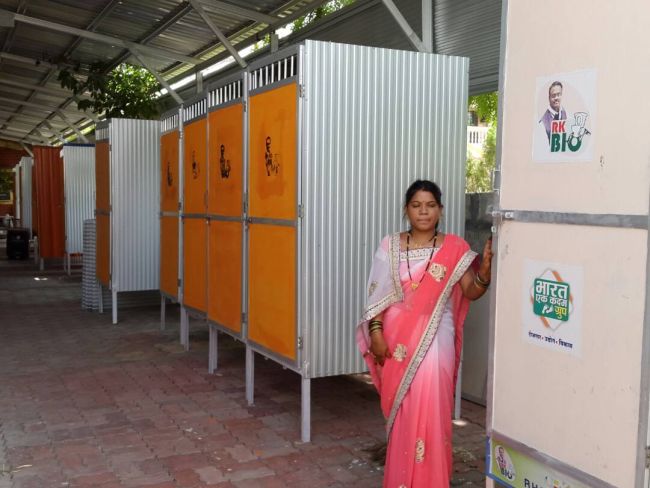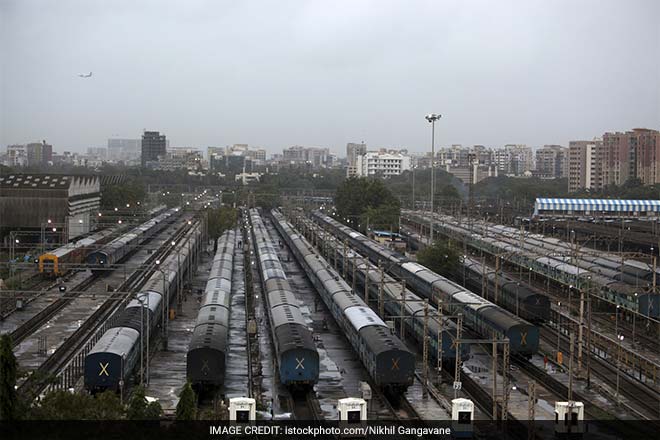New Delhi: As India awaits GST or goods and services tax – ‘One Nation, One Tax’ to rollout on June 30 midnight, Bio Toilet and Bio-digester manufacturers fear that the new indirect tax regime will affect the target badly of achieving a Swachh Bharat by 2019. Bio-Toilets are the next generation eco-friendly toilet that converts solid human waste to biogas. This concern is solely because the industry experts feel that GST which is touted as the biggest tax reform since Independence in 1947, will make the materials (bio-digester which is an anaerobic bacteria) and products ( the tank that treats human waste) used to make bio-toilets even more costly.
Bio-Toilets And Swachh Bharat Abhiyan
To make India clean, Prime Minister Narendra Modi started the mega drive of Swachh Bharat Abhiyan on October 2, 2014, with a target to make India swachh and open defecation free by 2019. Currently, one of the major hurdles in achieving this aim is that still half of India’s population practice open defecation. Another major issue is the amount of waste that remains untreated, resulting in endless piles of garbage and trash in the country. A report released by a global NGO says that the daily waste produced on Indian streets can easily fill 16 jumbo jets or eight Olympic-sized swimming pools.
Bio-toilets in a way can solve these key issues – one it is a toilet facility and second, it is environmental friendly. Till now Indian Railways is backing this technology in a big way. It has made it a mission to install bio-toilets in all coaches by 2019.
Also Read: With Low Cost And Smart Bio-Toilets An Engineer Brings Change To Rural Maharashtra
Why Only Railways And Not Others Opting For Bio-Toilets
Even though bio-toilets are good for the environment, the irony is not many people are opting for this technology, the reason being that it is costly. Under GST, various taxes relating to manufacturing of bio-toilets will be normalised in different states but that does not solve the problem as the cost of bio-toilets are expected increase further in the new tax regime.
Also Read: Swachh Rail-Swachh Bharat: Why The Big Push To Bio-Toilets?
What Is The Concern?
With GST being rolled out, it was expected to make these products more affordable, but, that will get hampered because now it is expected that GST of 18% will be proposed on the bio-toilet industry which is higher than what is currently being charged from manufacturers of different states.
NDTV spoke to various bio-toilets manufacturers to get their views on the matter:
Bio-Toilets Are As It Is Costly, GST Will Make Them Costlier
Bio-toilets are the future of Swachh Bharat Abhiyan and India needs high quantity and amount of the materials and products used to make the bio-toilets to meet its target of clean India by 2019. We are supporting the government’s mega plan by producing those materials but if it will have an 18% or high tax then who will buy it from us? It is government’s duty to make it cost effective. The problem currently is that in GST list which caters 5 categories (zero per cent, 5 per cent, 12 per cent, 18 per cent and 28 per cent) does not mention bio-toilets and bio-digesters at all, says Manoj Jha from Arkin Creations.
Currently, a large part of India depends on septic and litch pit system which is not environmental friendly, but since those are manufactured locally by masons and labours they will not be impacted much by the GST as the work is not being done by listed companies. But, when it comes to Bio-Toilets, it is an industry so it falls under a listed channel thus GST impacts it directly.
Highlighting this issue, Mr Jha added, Our competition is with these local labours, we are building a technology which is good for the environment. Still, we are the one who will be impacted more by the GST. The competition should be fair, right, and the government should help us. How will NGOs, villages and the government will come to us when we sell a product to them at a much higher cost than the competition? As it is for Swachh Bharat Abhiyan, all these people have a limited budget; they will never be attracted towards our technology.
Reiterating the same thoughts, Lokendra Singh, Director of Bio-Digester Development Establishment, said, “On one hand the government is giving Rs. 12,000 as a subsidy amount to build the toilet and on the other hand, it is putting more tax to an eco-friendly toilet product, how is it supposed to help the cause?”
Will GST Impact Bio-Toilets Timeline In Railways
On whether GST will affect railways timeline of implementing bio-toilets by 2019, Lokendra Singh added, “Don’t think it will hamper railways much because it is a government project, they will take out money to meet the target. The problem is with other channels, railways is just one part of it.”
Solutions And Actions
Suggesting the solution for the ongoing problem of ‘Bio-Toilets’ being costly, Mukesh Sakhuja from Grandeur Business Solutions Private Limited said, Bio-digester is one of the most demanded things in India currently because the bacteria helps treat the waste in bio-toilets. It is simply made from cow dung at least that should come in an exempted category and should be tax-free. Currently, the GST list does not even mention it. It was a problem earlier as well when every state was selling the materials and products of Bio-Toilets at a different tax rate, with GST we thought it will get better, but that doesn’t solve anything because the product will be even more costly.
Adhir Khanna of the Alfa Systems & Services said, “We have written a letter to the finance ministry, GST council about this issue, but till now we have got no response.”
He also added these are environmental friendly products; they should definitely have a category, that way it will get a boost not only in railways but in other sectors and households too.
The Future
Building toilets are not enough for the Swachh Bharat mission to be successful, it is equally important to focus on building toilets that are environment-friendly and sustainable. There are many corporates, NGOs and industries that are helping the government meet its target effectively, but the onus lies with the government when it comes to availability and affordability.






























